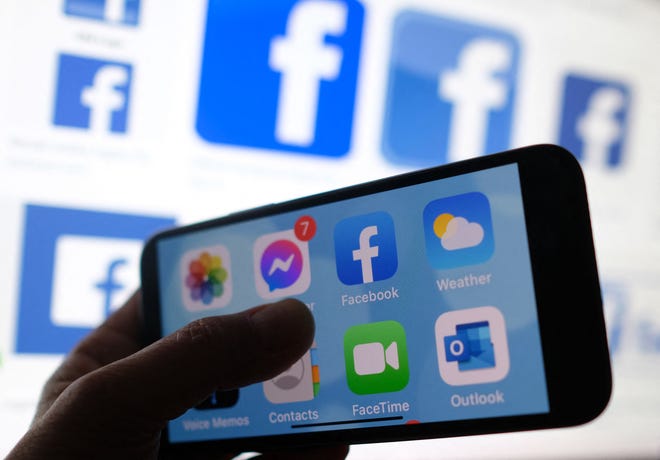Would you log off from Facebook and Instagram for a day? What about three? Social justice and civil rights groups are urging consumers to join a nationwide boycott starting Nov. 10 to protest what they say is the social media giant’s failure to address the destructive role it plays in American life, from the deadly COVID pandemic to the Jan. 6 attack on the Capitol.
Kairos, which is organizing the boycott, is calling it The Facebook Logout, the technology-focused racial justice group exclusively told USA TODAY. “People make this platform powerful, and without users, there is no Facebook,” Kairos executive director Mariana Ruiz Firmat said in an interview.
The boycott’s website says: “We’re really over Facebook. So we’re logging out.” It encourages other users to take the pledge.
“From allowing white supremacists to plan a violent insurrection to ignoring disinformation for profit, Facebook is doing their worst,” It says: “So we’re doing the thing that will get Facebook’s attention: logging out.”
One of the boycott’s demands: The removal of Mark Zuckerberg as CEO. The consumer boycott comes as the drumbeat of criticism and rumblings of other boycotts intensify.
Facebook is on the defensive after the publication of a five-part Wall Street Journal investigation that used leaked internal documents to show the company knew about the harms it causes, including to the mental health of teenage girls on Instagram.

Nick Clegg, Facebook’s vice president for global affairs, condemned the Journal investigation, dismissing charges that Facebook executives repeatedly ignored warnings about the harmful effects of its products and policies.
“These stories have contained deliberate mischaracterizations of what we are trying to do,” Clegg wrote in a blog post. Clegg did not specify the nature of the mischaracterizations.
“The public is tired of providing 98% of Facebook’s revenue through ads, yet having no say in the governance of the platform,” She said. “People are desperate for collective action and The Facebook Logout provides a way for people to use their power to demand change.”
Other demands include an overhaul of content moderation policies, data policies that protect users’ privacy, and a strategy to combat disinformation “that does not prioritize Facebook’s bottom line.”
“These are just the tip of the iceberg, the beginning of a long-term fight to ensure that all platforms are a safe place for our communities to gather and organize,” Firmat said.
One of the biggest challenges organizers face is Facebook, which can be difficult to change for a long. The company has billions of users on its apps including Instagram, Messenger , and WhatsApp.
The Action Center on Race and the Economy and Accountable Tech are among the groups involved in the national logout. They will all mobilize their members. Together, they reach 3.1million people. At least 200,000 people will pledge to boycott Facebook. They then invite their networks to join them.
“The focus of this campaign is as much about showing people the power they hold as it is about impacting Facebook’s bottom line,” Firmat stated. “It’s important for people to know that we don’t have to be complacent with the terms Facebook sets or just be grateful for the tool. Because we make or break Facebook, we expect to play a role in the process of deciding how the platform is governed.”
According to an Axios report, leaders of Stop Hate For Profit’s social media boycott group are currently discussing whether to organize Facebook users in a campaign against Facebook.

After Facebook refused to remove a post by then-President Donald Trump, Stop Hate For-Profit started an advertising boycott campaign. Many argued that it incited violence.
Over concerns that Facebook was not doing enough to combat hate speech, hundreds of advertisers including large consumer brands pledged to boycott Facebook’s advertising. But the exodus of spenders was not enough to push CEO Mark Zuckerberg to make the level of change that critics are demanding and did not dent the company’s bottom line.


